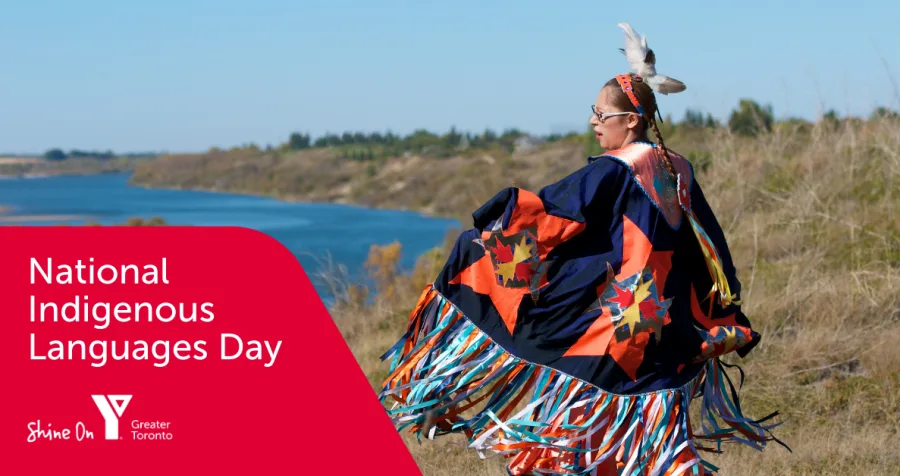
Preserving and celebrating Indigenous languages
“Language is the expression of our culture and our land.
We cannot have one without the others.
We cannot describe our culture and our land if we do not have language.”
—Queensland Indigenous Languages Advisory Committee
March 31 marks National Indigenous Languages Day, an occasion to honour the linguistic heritage of First Nations, Inuit, and Métis across Canada. It reminds us of the importance of Indigenous languages in shaping the culture and identity of Indigenous communities and preserving history.
Initially called National Aboriginal Languages Day, it was created in 1989 by the Assembly of First Nations. The day’s purpose is to raise awareness of Indigenous languages across Canada and to build support for their preservation.
On the verge of extinction
For over a century, Indigenous languages were pushed towards extinction through policies under the Indian Act and the Indian Residential School (IRS) system. At Residential Schools, Indigenous children were punished for speaking their first language in order to destroy and eliminate their cultural identity and ancestral connection to their roots and heritage.
Due to the fear and traumas experienced in Residential Schools, generations of Indigenous peoples never learned their language, putting those languages at risk of extinction.
Preservation efforts
The United Nations (UN) declared 2022–2032 the International Decade of Indigenous Languages to celebrate the diversity of languages spoken by Indigenous Peoples globally and as a call to action to preserve them. The UN estimates that over half of Indigenous languages will disappear by the end of the century.
Across Canada, Indigenous Peoples are working together to teach their languages to future generations as part of dismantling the ongoing challenges of racism, discrimination, and the impacts of decades of colonialism.
In the Truth and Reconciliation Commission of Canada’s 94 Calls to Action, calls 13–17 specifically address language and culture. Below are calls 14 and 15 and their current outcomes:
• Call 14 focuses on the creation of the Indigenous Languages Act. In 2019, the Government of Canada passed the act.
• Call 15 presses for the creation of an Indigenous Languages Commissioner. In 2021, one was appointed, and there is now an Office of the Commissioner of Indigenous Languages.
Biskaabiiyaang: Returning to ourselves
In Anishinaabemowin, Biskaabiiyaang means “returning to ourselves.” It describes the experience of being on a long journey and reaching the point of returning home. It is an Anishinaabe word for cultural resurgence, resisting colonial violence, and reclaiming the ways of being Anishinaabe through contemporary practices.
In support of preserving and celebrating Indigenous languages, we’d like to share a few resources and initiatives to support your awareness and continued learning for Anishinaabemowin, a local language to Treaty 13 and the Greater Toronto Area (GTA):
Virtual lessons & learning materials
• Anishinaabemdaa: Interactive Anishinaabemowin website with many resources, including lessons, vocabulary, cultural resources, and interactive teachings.
• Anishinaabemowin Grammar Site: From the University of Wisconsin, resources include weekly lesson pages with vocabulary, speech fragments, and grammatical notes and links.
• Ontario Curriculum Ojibwe: A guide for teaching Ojibwe to grades 1–12.
• Guide to Anishinaabemowin Resources
Facebook & online groups
• Anishinaabemowin (includes bilingual posts)
• Ojibwe Language Fix of the Day
Online dictionaries
• The Ojibwe People's Dictionary: From the University of Minnesota. The dictionary entries offer audio recordings, images, documents, and videos.
• Freelang Ojibwe-English Dictionary: Download the free dictionary or browse online.
• Potawatomi Dictionary: A concise English to Potawatomi, Potawatomi to English dictionary.
• A Dictionary of the Otchipwe Language: By Fr. Frederic Baraga, 1853
Web books & stories
Free on the Web.
Stories in syllabics and English with sound. Links to information on how to download syllabics. In Oji-Cree.
Texts in the Roman alphabet, with sound and English translation. Click on the menu icon.
• Nish Tales: Walking and Talking with Nanabush
• Noozwinkeng (Naming) as Cultural Transmission
Texts are available in Ojibwe and English.
A resource dedicated to Anishinaabemowin from Bemidji State University. It’s an excellent source for stories; some have audio files.
• Universal Declaration of Human Rights — Ojibwe
A resource from the United Nations in Anishinaabemowin.










